#Government
Buying an Electric Vehicle Just Got Cheaper (Again) in Texas
The State of Texas arouses visions of oil-rich tycoons with dysfunctional families, a fierce adherence to individual liberties, and vast quantities of trucks bearing the names High Country, Longhorn, Laramie, and King Ranch. While agriculture and industry play a major role in the state’s economy, not every vehicle in the Lone Star State’s fleet relies on gas or diesel.
With numerous major urban centres and a good economy, electric vehicles have made inroads in Texas over the past several years. Soon, a resurrected incentive could light a fire under EV sales. Well, except for one brand.
California Demands VW Build Electric Charging Stations in Poor Neighborhoods
As part of its emissions cheating penance, Volkswagen AG previously agreed to support clean vehicles by injecting a juicy $2 billion into green initiatives in the United States. A whopping $800 million of that sum was reserved for California. On Thursday, state legislators pressed the automaker to spend electric charging infrastructure funds in low-income areas, passing a bill included in a budget package supported by Governor Jerry Brown.
The reasoning behind forcing VW to install more charging stations in disadvantaged communities is twofold. First, and most obviously, is the fact that poorer neighborhoods typically don’t receive the same level of infrastructure advancement as affluent or high traffic areas. In fact, they’re probably the last place the state would bother installing EV charging stations. Secondly, it’s a good way to keep this punishment from becoming a business opportunity.
Criticism arose when rival automakers realized Volkswagen’s charging network could become profitable and give it an early advantage in a competitive new market, especially if it could handpick the sites.
Republican Proposal Would Block States From Setting Self-driving Rules
A coterie of Republican officials believe individual states should be forbidden from governing themselves in regard to autonomous vehicles. Only in its commencement, a new U.S. House proposal claims states would not be within their rights to mandate the design or testing of self-driving cars.
If made law, the proposal would eliminate the need for automakers to acquire any pre-market approval from federal regulators. While that sounds like a free-for-all ripe for accountability issues, several states already have laissez-faire or highly supportive attitudes when it comes to autonomous vehicles, though others could become serious headaches for automakers hoping to swiftly get the technology on the road.
The 45-page legislative draft includes 14 bills and would designate the U.S. National Highway Traffic Safety Administration as the primary agency for regulating self-driving cars. It’s aggressively pro-business and, despite being penned by Republicans, has managed to achieve some bipartisan support.
Volkswagen Apparently Needs More Nannies to Avoid Acting Up
It’s hard not to imagine Volkswagen as a tempestuous child, prone to mischief and currently on a “time out” after getting caught lobbing spitballs in class. The thought softens the reality of a massive corporate deception that polluted the air and led to tens of billions of dollars in penalties.
As it turns out, serving as Volkswagen’s nanny is exhaustive work. After the U.S. government ordered a monitor to keep an eye on the automaker as part of its wildly expensive settlement, the monitor feels the need to triple his staff.
Profit From Punishment? Volkswagen's Preferred Emissions Penance Faces Criticism From State Officials and Automakers
Government officials and automakers are accusing Volkswagen of twisting its emissions-cheating penance to its own advantage. As part of its sentence for equipping over half a million vehicles with defeat devices, the United States is forcing VW to spend billions of dollars on a decade-long program that promotes environmentally friendly transportation and green technologies. The company opted to invest a large part of those compulsory efforts into establishing an EV charging network within the U.S.
However, seven state attorneys generals have urged the Environmental Protection Agency to closely monitor Volkswagen’s course. They contend that such a network would give the company an unfair advantage in the forthcoming electric revolution, allowing VW to profit from its misconduct.
Can EVs Survive Without a Government Check or Tax Break? Not in Denmark
Despite the protestations of many members of the green car crowd, dollars and cents do seem to play a major role in the motivation to purchase an electric or plug-in hybrid vehicle. Right now, EV proponents and domestic automakers are worried the U.S. won’t renew the green car tax credit — a segment-boosting incentive that shaves thousands off the price of a new electric vehicle.
Some would argue if green car buyers are really devoted to the planet’s health, purchase price wouldn’t be an issue (assuming the buyer’s bank balance is sufficient). Individuals being what they are, motivations and circumstances will vary. Still, no one can argue that a tax credit doesn’t sweeten the pot, just as dealer incentives on the hood of a truck help move sluggish inventory.
In Denmark, however, lawmakers have discovered that once-steady sales of EVs will slow to a trickle when green vehicle buyers are treated like regular car buyers.
President Trump Planning to Abandon Paris Climate Accord: Reports
President Donald Trump has said he’ll be providing his thoughts on the Paris climate deal in the coming days, but media outlets are already suggesting his take on the issue will be to leave it. Sources are claiming the president’s mind is made up and, to the surprise of no one, odds are good he will withdraw the U.S. from the deal.
Trump has already made it his mission to overturn as many Obama-related policies as possible and seems unconcerned with environmental issues that might stand in the way of potential manufacturing opportunities. Since taking office, Trump has been pushing regulators to rethink the United States’ auto emission guidelines, undoing one of the previous administration’s final acts in office.
Pulling out of the Paris accord would fulfill a campaign promise and negate the need for the U.S. to adhere to rigid emission standards — at the expense of further alienating the president from Europe’s leadership.
Canadian Province to Become Used Nissan Leaf Dumping Ground
The Nissan Leaf, which burst onto the scene in late 2010 as one of the first mass-market electric vehicles, hasn’t changed much since its introduction. Until very recently, driving range sat well below the three-figure mark. And as its technological edge dulled, the Leaf gained a reputation as one of the fastest-depreciating vehicles on the market.
If you find yourself living in a certain jurisdiction, Nissan and a mid-level government has now made a purchase of a used Leaf far more attractive than it once was. Message to the U.S. and the rest of Canada: Quebec wants your old Leafs.
Bill Ford to Accept Shareholder Outrage in Place of Ex-CEO Mark Fields
Ford’s new CEO, Jim Hackett, will be able to avoid some of the shareholder wrath his predecessor assumed. With Mark Fields gone, Bill Ford has taken it upon himself to keep the dream alive and promote the company’s vision of the future while its share price continues to dwindle. The executive chairman and great-grandson of the business’ founder has expanded his duties to include managing corporate communications and interacting with the government — two tasks few would envy.
Bill Ford claims that assuming the responsibilities would allow Hackett to focus on the daily operations and better familiarize himself with the automotive world, of which he has little direct experience with. That isn’t to suggest he’s not the man for the job, but Ford sees no reason to burden him with external communication duties — which we know can get ugly — as he’s settling into the new position.
Pittsburgh is Getting Tired of Uber's Corporate Nonsense
Pittsburgh boasts more bridges than any other city its size and Uber seems intent on burning every single one. After the ride-hailing company offered to test its autonomous platform in the city, Pittsburgh welcomed it with open arms. Now it’s starting to seem like it got a raw deal. Uber has become like the city’s drug-addicted teen — permitted to stay, despite very disappointing behavior and repeated broken promises. You get the sense its only one big screw-up away from being thrown out on its ass.
It hasn’t even been a full year and residents and officials are already claiming Uber has already let the city down. You have to place some of the blame on Pittsburgh for enabling Uber’s uncouth behavior, but it didn’t force it to abandon corporate citizenship. In the last nine months, Uber has withdrawn its promised support of Pittsburgh’s bid for a $50 million federal transportation grant and completely failled at creating jobs it promised struggling communities. It has also started charging fares for its driverless taxis, something the city initially assumed would be free in exchange for the company having the privilege of testing there.
U.S. Plans to Schedule Opening NAFTA Talks in Roughly 90 Days
U.S. Commerce Secretary Wilbur Ross want to begin formal talks to renegotiate the North American Free Trade Agreement with Canada and Mexico in a little over three months, adhering to the campaign pledges made by President Donald Trump last year. Ross explained to reporters that “sometime in the next couple of weeks” he will issue a notice to Congress stating the Trump administration intends to start formal NAFTA negotiations in just 90 days.
However, since he expressed his intentions in front of a gaggle of reporters, Congress is probably already aware. But it won’t be “official” until they get a piece of paper signed by the appropriate parties on the applicable letterhead — hopefully, embossed with a fierce-looking eagle surrounded by dollar signs.
No Mercedes-Benz Diesels for 2017, or Maybe Ever
Fans of German compression-ignition engines had best dig out those old, glossy posters of an olive green 300D, as they’re going to need it.
Daimler announced it will not sell 2017 diesel Mercedes-Benz models in the U.S. as rumors swirl that the automaker might give up on the segment altogether.
The problem lies in regulatory approval, which Daimler has struggled — and failed — to obtain. Following the Volkswagen diesel scandal, the Environmental Protection Agency and California Air Resources Board began going over diesel emissions with a fine-toothed comb. The four diesels Mercedes-Benz had hoped to sell in the U.S. this year became trapped in a bottleneck last fall.
After killing off the C300d’s prospects for good, the automaker then sought approval for just one model — the GLS350d. No dice. Investigations on both sides of the Atlantic could now cap the company’s 57-year diesel history in the U.S.
Elderly Man Wins Court Case After Receiving Three Tickets for Smoking in His Porsche
While places like New York and California might come to mind first, no one bans things quite like the jurisdictions north of the border. Banning, a popular pastime given the cold outside temperatures, are always done in the hazy pursuit of public safety. Something bad could happen? Ban it.
When it comes to smoking, few will disagree that smoking in the workplace can have a negative impact on employees. The same goes for restaurant and bar patrons. As non-smoking areas (both indoors and outdoors) expand across the U.S., here’s a cautionary tale of how vindictive and overzealous an enforcer of these law can be.
They’ll nab you in your car.
Former UAW President Supports Trump's NAFTA Overhaul, Less Enthusiastic About the Man
The former president of the United Automobile Workers, Bob King, says he supports President Trump’s plan to reconfigure the North American Free Trade Agreement — so long as it maintains labor’s best interests. Ironically, King’s support of the president’s trade plan came as he attended an Ann Arbor rally in support of an EPA testing facility in danger of being closed due to Trump administration budget cuts.
King, who served as the union’s president from 2010 to 2014, faults the trade pact for a loss of American jobs. It’s his belief that NAFTA allowed automakers to invest in more-affordable regions — like Mexico — at the expensive of the United States’ workforce. His successor, Dennis Williams, has echoed these claims and also wishes to see NAFTA reformed.
Texas May Be the Next State to Eliminate Annual Vehicle Inspections
The Lone Star State may be doing away with annual state vehicle inspections soon. On Thursday, a 27-4 vote in the Texas Senate approved a bill that would eliminate mandatory inspections for passenger vehicles. Although Senate Bill 1588 doesn’t change anything for commercial trucks, they’ll still be required to undergo a yearly safety inspection, and automobiles residing in seventeen counties will also have to pass emission tests for local air-quality laws.
For the rest of the state, it would be open season. “This is a tax cut that Texans will feel,” claimed Senator Don Huffines, a Dallas-based Republican who approved the bill. “It will save Texans $130 million they’re now having to pay for a procedure that has proven to have no discernible safety benefit to drivers.”







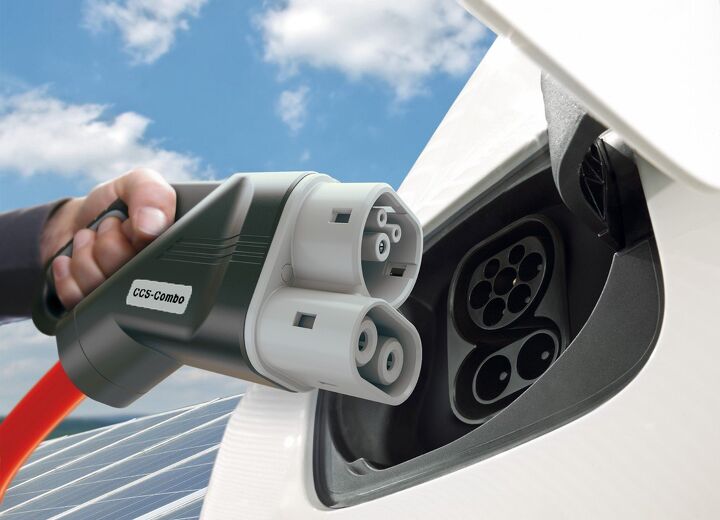


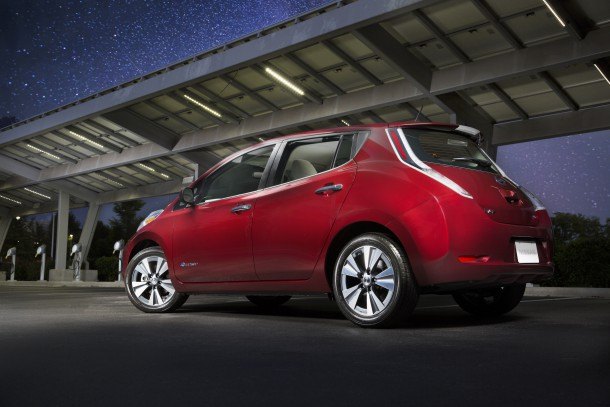


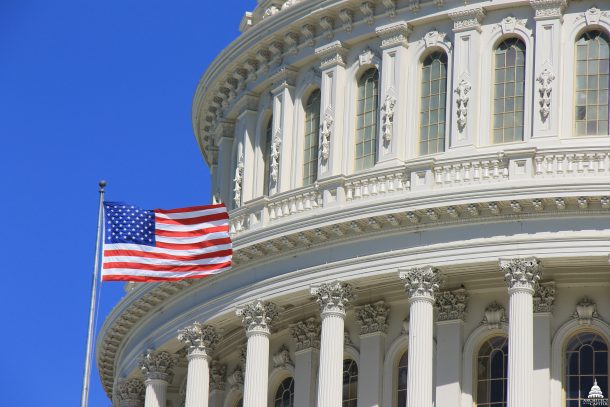
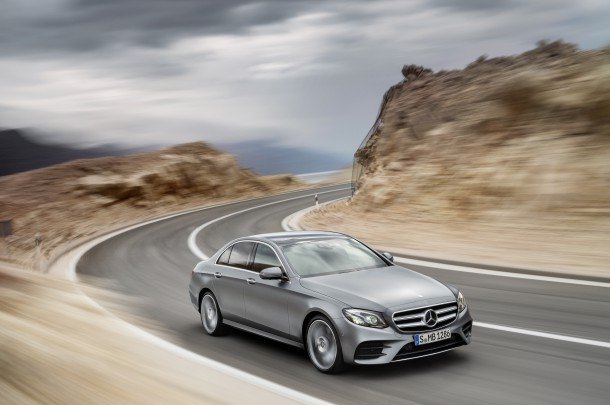


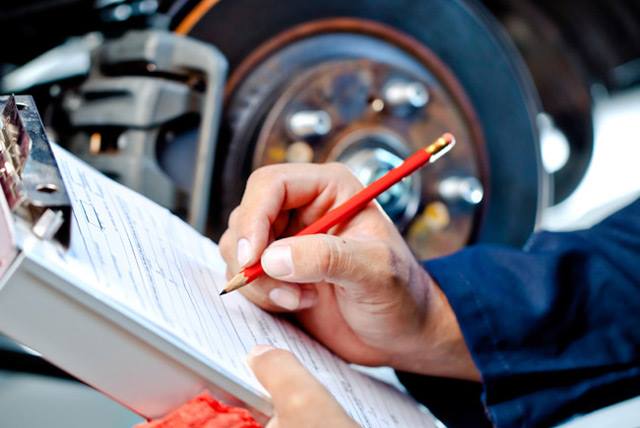












Recent Comments